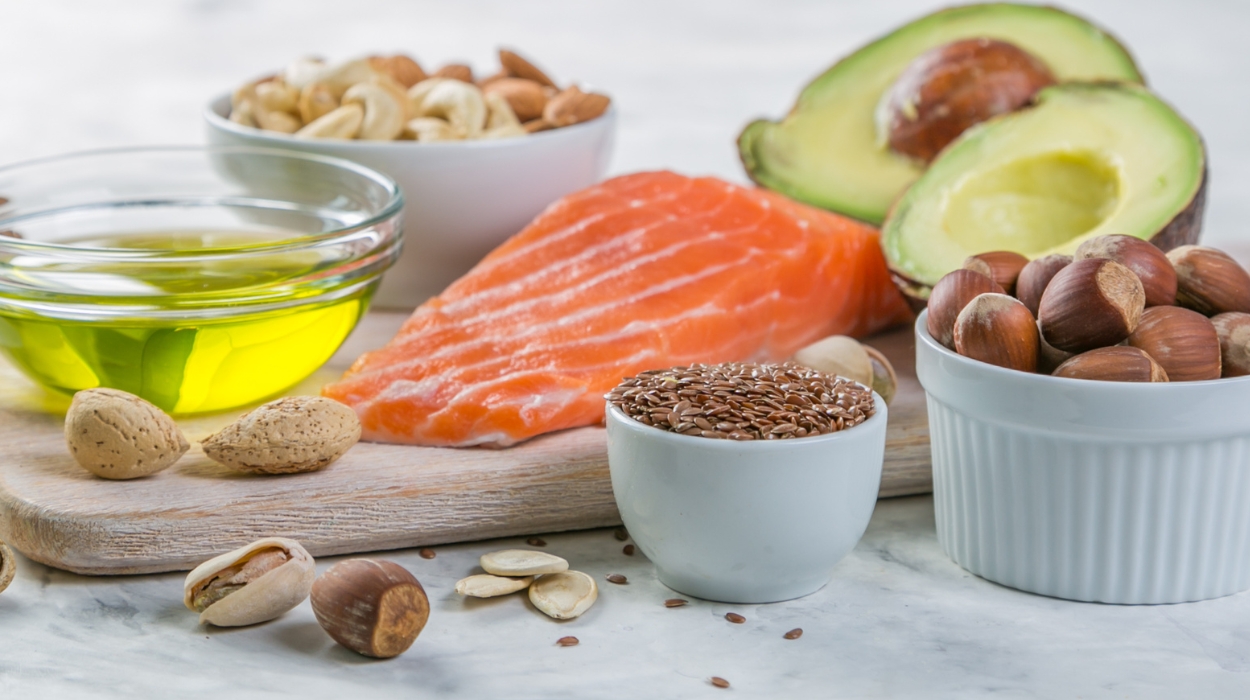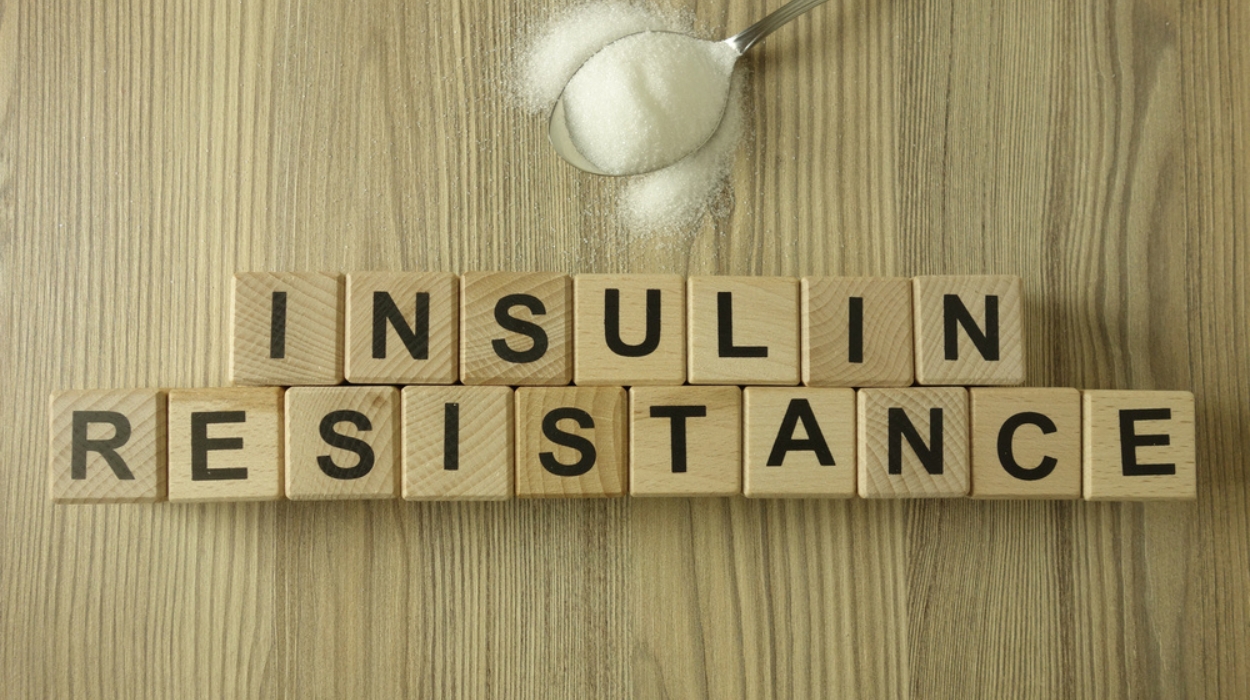Wondering how to lose weight with insulin resistance? If you are dealing with this condition, it is no secret that it often goes hand in hand with weight gain. However, there are many steps you can take to reverse the trend and start losing weight safely and effectively.
Insulin resistance is part of a group of conditions that can lead to metabolic syndrome. Metabolic syndrome is a combination of several risk factors that increase the likelihood of developing heart disease, stroke, and type 2 diabetes. These factors include obesity, high blood pressure, low levels of good cholesterol, and high glucose levels in the bloodstream.
Today, we will explore seven of those steps, including diets and workouts, in detail. Keep reading to learn more about how to shed unwanted pounds with insulin resistance.
7 Ways To Lose Weight With Insulin Resistance
To manage weight with insulin resistance:
- Eat meals at consistent times.
- Include lean proteins.
- Eat high-fiber foods and probiotics.
- Opt for healthy fats like those found in avocados and nuts.
- Avoid high glycemic index foods.
- Perform regular high-intensity exercise.
- Consider herbs and natural supplements.
How To Lose Weight With Insulin Resistance
The fastest way to lose weight with insulin resistance involves interventions to improve or reverse insulin resistance in the first place. By doing this, you will burn calories and also may prevent further health conditions from developing, such as type 2 diabetes.
Eat Regular Meals
A key component of metabolic syndrome, how and when you eat may increase the risk of developing[1] insulin resistance.
Eating more frequently and having breakfast in the morning might be protective against metabolic syndrome. Eating late at night, skipping breakfast, eating only one meal a day, and eating irregularly might increase our risk of developing this syndrome. As for the ever-popular intermittent fasting, the effects on metabolic syndrome aren’t apparent yet, and more research is needed to better understand it. It may be that fasting does not lower blood sugar.[2]
Aim for three healthy meals daily, each eaten at the same time each day, with a small, protein-rich snack in between them to keep your blood sugar balanced and your metabolism active.
Include Lean Protein
Diets high in lean protein can reduce insulin resistance and improve swings in blood sugar levels.[3] In fact, overweight women who are insulin-resistant may benefit from a high-protein diet over a Mediterranean diet, which is one of the healthiest diets out there.
Good sources of lean protein include chicken, turkey, fish, low-fat dairy, eggs, and legumes such as beans and lentils.
Increase Fiber And Probiotics
If you want to follow a diet for insulin resistance to lose weight, you may benefit from fiber and probiotics. Studies have found[4] that those who eat more fiber have lower levels of insulin resistance, especially when the recommended daily intake has been met. The best sources of fiber are vegetables, fruits, and legumes. Aim to eat plenty of leafy greens, broccoli, bananas, and avocado, and add lentils, split peas, chickpeas, and chia seeds where you can.
Having a healthy gut microbiome[5] may also help control prediabetics’ blood sugar. Increasing your intake of good quality probiotic foods, such as kefir, yogurt, and sauerkraut, can help build healthy gut bacteria and help with losing weight.
Enjoy Healthy Fats

Certain fats are worse than others[6] when it comes to causing insulin resistance, inflammation, and weight gain.
Medium-chain saturated fats and monounsaturated fats are less likely to cause insulin resistance, inflammation, and fat storage than long-chain saturated fats, especially when eaten with a diet moderate in refined carbohydrates. This is because these types of fats are more likely to be burned for energy and less likely to be stored as fat, which can lead to increased energy expenditure. You can find these fats in avocados, nuts, olive, and coconut oil.
Avoid High GI Foods
The Glycemic Index, or GI, determines the rate at which a food increases blood sugar levels. Foods with lower GI values are digested and absorbed more slowly, resulting in a gradual and moderate rise in blood sugar.
Studies in children[7] have shown that those who follow a low-GI diet show a significant drop in their fasting plasma insulin. This suggests that the low-GI diet improves insulin sensitivity.
Here are a few examples of foods with favorable GI values:
- Most non-starchy vegetables, such as spinach, broccoli, bell peppers, zucchini, tomatoes, and cucumber.
- Whole grains like oats, barley, bulgur, buckwheat, and whole grain bread/pasta.
- Legumes such as lentils, chickpeas, and beans.
- Some fruits including cherries, plums, peaches, apricots, apples, oranges, pears, and berries.
- Nuts and seeds.
- Dairy, including milk, cheese, and yogurt.
Cooking method, ripeness, time of eating, and what else you eat with the food can affect its GI.
High-GI foods include potatoes, white bread, rice cakes, cornflakes, instant oatmeal, soda, and sugary beverages. While some foods on this list, such as potatoes, are highly nutritious, they should be avoided by people who have insulin resistance.
Exercise Consistently

There is a relationship between physical activity and insulin levels in the body.[8] Physical activity is known to improve insulin sensitivity, and increasing the intensity of exercises can significantly reduce insulin levels.
The higher the intensity of physical activity, the lower the insulin levels. So, getting more active than just walking might be a good way to manage or prevent insulin resistance and maintain a healthy weight. Some forms of high-intensity physical activity include running, cycling, swimming, and playing racquet sports.
Use Herbs That Promote Insulin Sensitivity
Certain plants can help improve insulin resistance.[9] Some more well-studied herbs include stinging nettle leaf extract, cashew leaf extract, garlic oil, and mushroom extracts. Resveratrol, a compound found in grapes and berries, has also been shown to help transport glucose into cells and enhance insulin sensitivity in animal models. Many herbs are available in supplement form, or you can include more of them as foods in your diet.
What Is Insulin Resistance?
Insulin resistance occurs when the cells in muscles, fat, and the liver fail to respond effectively to insulin, preventing them from utilizing glucose from the blood for energy.
When excessive blood sugar enters the bloodstream, the pancreas produces more insulin to facilitate its entry into cells. Gradually, cells become unresponsive to the increased insulin levels, becoming insulin resistant. Despite this resistance, the pancreas continues to produce more insulin to trigger a cellular response. Over time, the pancreas struggles to keep up, resulting in continually elevated blood sugar levels.
The Link Between Insulin Resistance And Your Weight
There are close links between insulin resistance, high blood sugar levels, and body weight. Obesity, particularly in the form of visceral fat concentrated around the abdomen and organs, is believed to be a cause of insulin resistance.[10]
Abdominal fat generates hormones[11] and other compounds that can trigger chronic inflammation within the body. Such inflammation may contribute to insulin resistance, type 2 diabetes, and cardiovascular disease. Lack of physical activity is also associated with insulin resistance and prediabetes. Regular exercise brings about changes in the body that help keep blood glucose levels in check.
Safety Tips
If you’re dealing with insulin resistance, here are some safety tips to help manage your condition:
- Aim for insulin sensitivity: The goal is to enhance your body’s insulin sensitivity, meaning your cells become more efficient at absorbing blood sugar, thus reducing the amount of insulin required.
- Embrace physical activity: Exercise is crucial in managing diabetes as it enhances insulin sensitivity. Don’t wait until a diabetes diagnosis to start moving. The sooner you incorporate physical activity into your routine, the better.
- Prioritize weight management: Weight loss can be vital in managing insulin resistance. Aim to maintain a healthy weight, as obesity significantly increases the risk of insulin resistance.
- Adopt a balanced diet: Incorporate fruits, vegetables, and lean proteins into your diet. Try to avoid processed foods and sugary drinks.
- Ensure sufficient sleep: A good night’s sleep is essential, as lack of sleep can contribute to insulin resistance.[12] Strive for 7-9 hours of quality sleep per night.
- Limit alcohol intake: Overconsumption of alcohol[13] can lead to insulin resistance and other health issues. It’s advisable to moderate your alcohol consumption.
- Manage stress effectively: High-stress levels[14] can impact your body’s ability to regulate insulin. Practice stress management techniques like meditation, yoga, and deep breathing exercises.
Conclusion
The best methods for how to lose weight with insulin resistance stem from proper management of blood sugar control. These include following a high protein, fiber, and low GI diet low in processed and sugary food, getting sufficient sleep each night, limiting alcohol intake, and managing stress effectively. Together, these can help reduce the risk of developing insulin resistance-related health issues and facilitate successful weight loss.
If you are concerned that you may be at risk of developing insulin resistance, it is important to consult your doctor for advice on the best plan of action. Your doctor can help decide if lifestyle changes, specific diets, or medication may be necessary. They can also provide you with additional tips and information for successful weight loss. They can also perform diagnostic testing and monitor your health throughout the process.
Frequently Asked Questions
Insulin-resistant people can lose with the proper dietary and lifestyle modifications.
Follow a diet high in lean proteins, fiber, and fresh fruits and vegetables. Avoid processed foods, refined carbohydrates, and sugar.
Common signs of insulin resistance include weight gain, increased thirst and urination, frequent infections, and high blood sugar levels.
 Evidence Based
Evidence Based